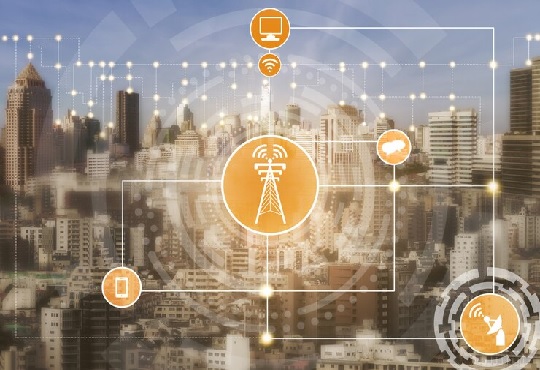IIT Hyderabad Develops Chip Merging 4G, 5G & Satellite

- IIT Hyderabad develops SoC integrating 4G, 5G, satellite for IoT connectivity.
- Low-power chip enables long-term battery-free operation, GPS tracking.
- Applications in health monitoring, cold-chain, defense; aligns with 6G vision.
An indigenous IoT-enabled system-on-chip (SoC) that incorporates elements of 4G, 5G, and satellite connectivity to provide reliable, low-power connectivity for what they refer to as the "Internet of Everything" was produced by researchers at the Indian Institute of Technology (IIT), Hyderabad, as reported by PTI.
This is a small and cost-effective chip that can also provide connectivity for several years without a battery change and offers coverage in remote areas, while connecting billions of devices such as sensors, meters, and wearables. This is one of the first major demonstrations of low-power, narrow band 6G technologies, and is considered a technological break-through.
Prof. Kiran Kuchi explained, the traditional 6G technology will continue to focus on immersive applications in high-speed connections, while this SOC technology prioritizes sensor-driven connectivity, creating a complementary improvement on existing connectivity networks, for sustainable massive-scale deployments of the Internet of Things (IoT).
In addition to WiFi and Bluetooth built-in, the chip includes GPS. Testing was conducted to ensure interoperability for standards compliance, and this SOC is ready to be commercially deployed into operator networks. This technology was developed under India's fabless semiconductor model of design fabricated abroad but tested and packaged in India which allows full ownership of intellectual property rights in India. Not only is this aligned to the ultimate goal to produce innovation liek this under India's Semi-Conductor Mission, but also avails stakeholder confidence to challenge "made in" vs. "Designed in" India.
Also Read: IIT Hyderabad Launches VLSI Chip Design Course with TCS iON
Health monitoring (domestically, via wearables, while globally, via animal tags for early warnings); tracking assets, goods, children, or school bags affordably; cold-chain integrity for vaccines and perishable goods in pharmaceutical and food logistics; real-time surveillance of water networks for leak detection; and defense tracking of mobile assets outside of cell coverage.
Prof. Kuchi commented on its "transformative applications," saying "This chip represents a special class of 6G technologies, being able to connect billions of devices intelligently and sustainably." He suggested these become adopted early by agencies for better governance, more intelligent governance in the areas of health, education, agriculture, and security, as part of the Viksit Bharat 2047 vision of "technological sovereignty." This gives India the opportunity of being a leader in inclusive 6G applications to support economic growth, development, and digital infrastructure.

.jpg)